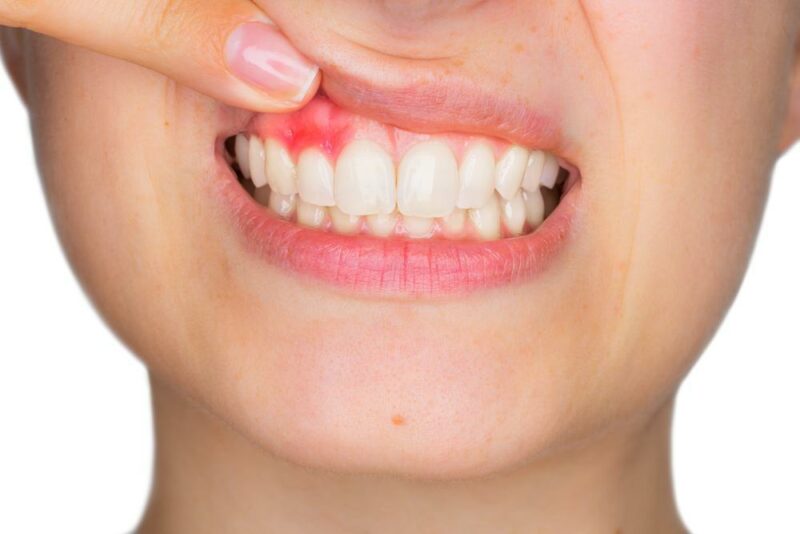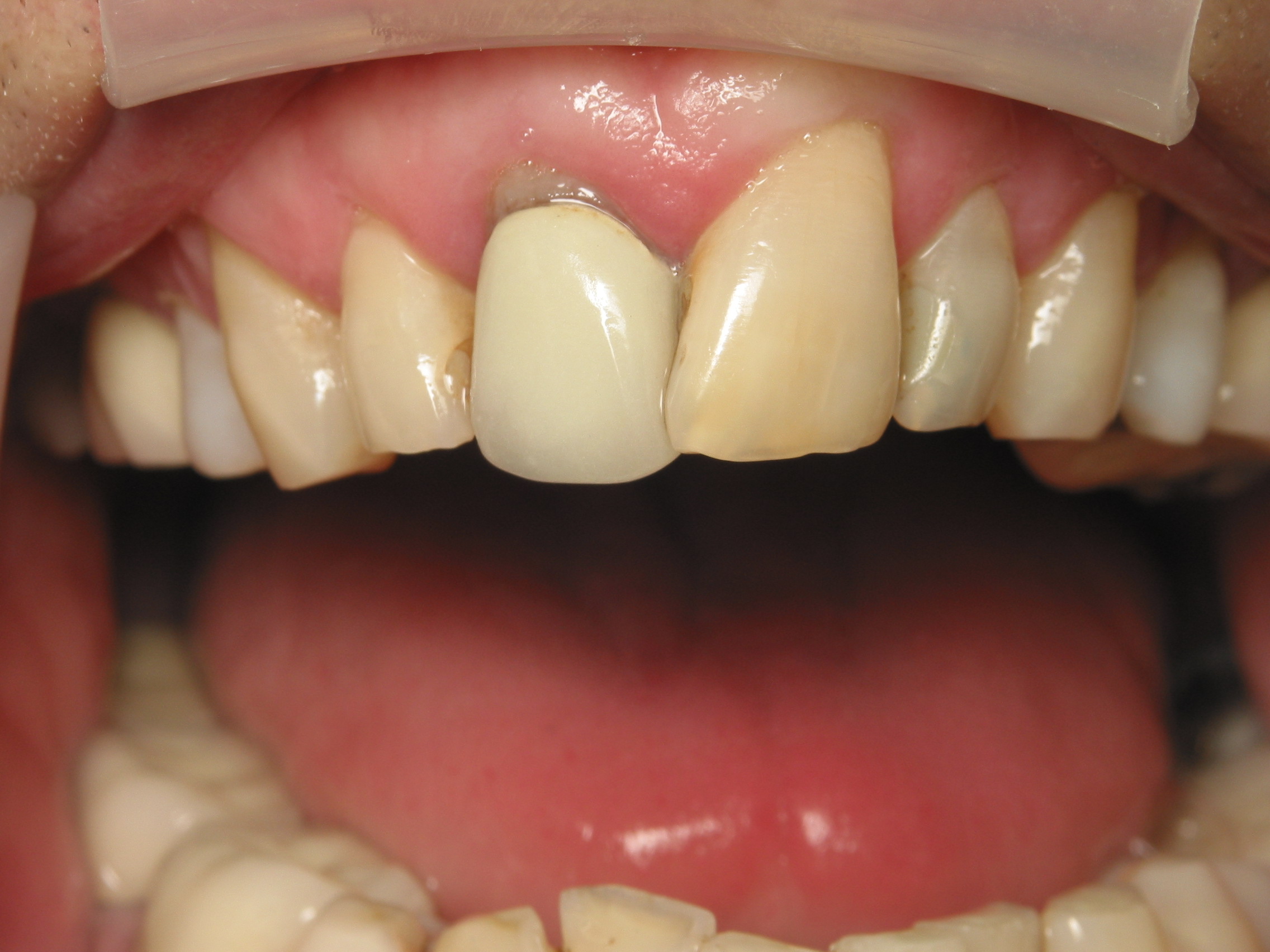

An earlier appointment is necessary if a person suspects a tooth abscess. People should visit the dentist if the swelling persists for more than a week. FDA drug safety communication: Risk of serious and potentially fatal blood disorder prompts FDA action on oral over-the-counter benzocaine products used for teething and mouth pain and prescription local anesthetics. A swollen gum around one tooth can occur for many reasons, including poor dental hygiene and periodontal disease.What causes a toothache? Academy of General Dentistry.Top ten dental symptoms - Symptom: Toothache.reduce the amount of time and money a person has to spend at the dentist. Gingival inflammation without loss of periodontal attachment (gingivitis). delay the need for expensive dental work.National Institute of Dental and Craniofacial Research. If you have toothache, you may also have: swelling around your tooth and inside your mouth. It can also affect your head, ear and jaw. The pain can be constant, throbbing, or it may come and go. Periodontal (gum) disease: Causes, symptoms, and treatments. It can cause pain and discomfort that ranges from mild to very severe.Gingivitis and periodontitis in adults: Classification and dental treatment. Practices such as healthy eating and managing blood sugar if you have diabetes also are important to maintain gum health. Annual dental X-rays can help identify diseases that are not seen by a visual dental examination and monitor for changes in your dental health.
#Teeth translucent pain gums swollen professional#
If you have risk factors that increase your chance of developing periodontitis - such as having dry mouth, taking certain medications or smoking - you may need professional cleaning more often. See your dentist or dental hygienist regularly for cleanings, usually every six to 12 months. Flossing before you brush allows you to clean away the loosened food particles and bacteria. Better yet, brush after every meal or snack or as your dentist recommends. That means brushing your teeth for two minutes at least twice daily - in the morning and before going to bed - and flossing at least once a day. Trench mouth is rare today in developed nations, though it's common in developing countries that have poor nutrition and poor living conditions. Trench mouth, also known as necrotizing ulcerative gingivitis (NUG), is a severe form of gingivitis that causes painful, infected, bleeding gums and ulcerations. But more studies are needed to confirm a link. Some research suggests that the bacteria responsible for periodontitis can enter your bloodstream through gum tissue, possibly affecting your heart, lungs and other parts of your body. Untreated gingivitis can progress to gum disease that spreads to underlying tissue and bone (periodontitis), a much more serious condition that can lead to tooth loss.Ĭhronic gingiva inflammation has been thought to be associated with some systemic diseases such as respiratory disease, diabetes, coronary artery disease, stroke and rheumatoid arthritis.

The longer that plaque and tartar remain on your teeth, the more they irritate the gingiva, the part of your gum around the base of your teeth, causing inflammation. You need professional dental cleaning to remove tartar. Tartar makes plaque more difficult to remove, creates a protective shield for bacteria and causes irritation along the gumline. Plaque that stays on your teeth can harden under your gumline into tartar (calculus), which collects bacteria. Plaque requires daily removal because it re-forms quickly. Plaque is an invisible, sticky film composed mainly of bacteria that forms on your teeth when starches and sugars in food interact with bacteria normally found in your mouth. Here's how plaque can lead to gingivitis: The most common cause of gingivitis is poor oral hygiene that encourages plaque to form on teeth, causing inflammation of the surrounding gum tissues.


 0 kommentar(er)
0 kommentar(er)
